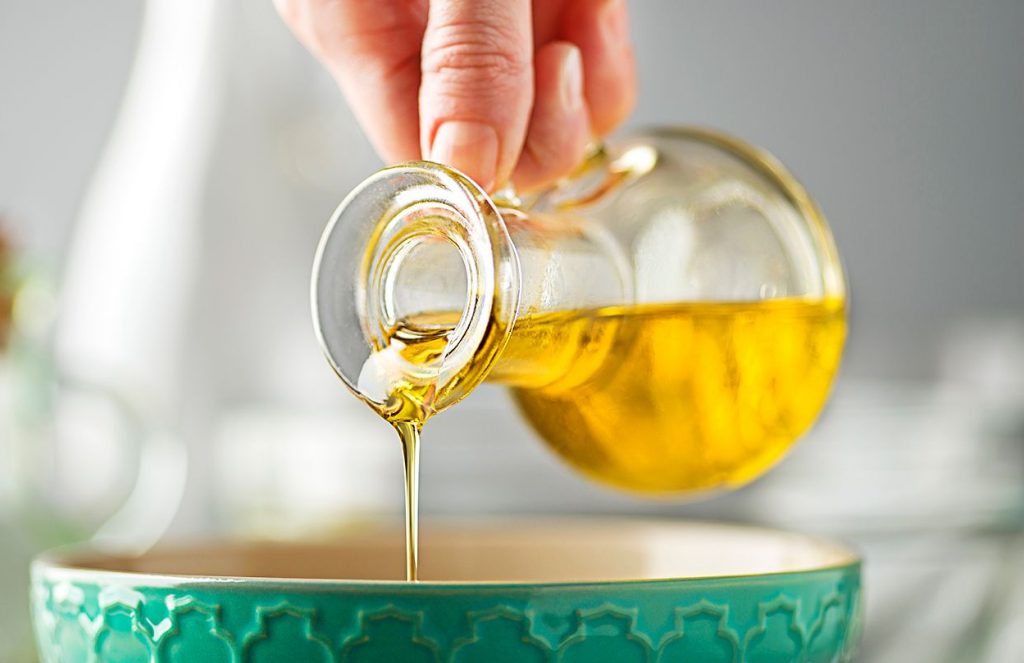Coconut oil is obtained from the nut (fruit) of the coconut palm. It contains medium-chain fatty acids, including capric acid, caprylic acid, and lauric acid. About 52% to 85% of coconut oil is made up of saturated fats, also called medium-chain acids.
Coconut oil is arguably one of the most popular and recommended oils, either for skin care or culinary purposes. Many people praise it for its health benefits which include antimicrobial and antioxidant properties.
Non-Nutritional Benefits of Coconut Oil
1. Protects the skin against eczema and similar irritations:
Eczema, also called contact dermatitis, is a skin condition marked by redness, itching, and scaly patches that sometimes weep. It’s a chronic condition of the skin and may come and go over time.
Although there is no strong evidence that coconut oil is a cure-all, it may effectively reduce eczema symptoms by soothing the skin, easing irritation, and reducing infectiousness.
2. Moisturises the skin:
Because coconut oil is fairly comedogenic, many dermatologists don’t recommend it for use on the face — especially if you have naturally blemish-prone skin. But for the body, it’s perfectly acceptable. New York City board-certified dermatologist, Joyce Park, M.D. says “Instead of applying it to your face, which can cause breakouts, you can use it as a moisturizer for the body only because it’s rich in fatty acids and has both antibacterial and anti-inflammatory properties.”.
The skin on your face has more sebaceous glands than that on your body, making it more susceptible to oiliness. As Marina Peredo, M.D., a New York City-based board-certified dermatologist previously told Allure, “the biggest difference is that the skin on your face is naturally thinner than the skin on your body.” The skin cell turnover rate on your face is also faster, which explains why your body’s skin can be drier.
3. For deodorant purposes:
Yes, you can use coconut oil as a deodorant against body odour, which is caused by bacterial activity. The inherent antimicrobial properties of coconut oil can reduce odour, and coconut has a very pleasant smell – you should try it.
Nutritional Benefits of Coconut Oil
Coconut oil is saturated fat and, just like other saturated fats, you should only eat it in small quantities. Read our article 5-unhealthy-foods-and-healthy-substitutes. It is advised that you avoid saturated fats, as they could cause serious health complications. However, although they may be generally unacceptable, they still possess some characteristics that could be of benefit to your health.
1. Quick source of energy
Since 100 grams of coconut oil contains 900kcal (3,768kJ), it can serve as a very fast way of getting energy. Most of the fat in our diet is made up of long-chain triglycerides (LCTs). According to the National Institute of Medicine (NIH), when you consume LCTs, the fat molecules are transported through your blood to the tissues in need of them, such as muscles or fat tissues.
The triglycerides in coconut oil are medium-chain triglycerides (MCTs). They go straight to your liver and are a rapid energy supply in much the same way as carbohydrates are (your body’s most preferred choice of energy).
2. Reduces hunger
One amazing and interesting feature of MCTs is that they may help reduce food intake. The MCTs that you eat are broken down in a process that produces molecules called ketones.
According to an article published in the NCBI, ketones reduce appetite by either acting directly on the brain’s chemical messengers or altering the levels of hunger-inducing hormones, such as ghrelin.
3. Encourages weight gain
Like all saturated fat, coconut oil contains a high amount of cholesterol. You will put on weight, and quickly if you consume a lot of it, but it will be detrimental to your health. Anyone interested in living a healthy life shouldn’t use it, or any other saturated fat, to gain weight.
In conclusion, Coconut oil may not be as healthy as other unsaturated oil, but yet, it still plays a very significant role in our life. You can read more about oil and which is more better used here.

Pingback: Six Food Types to Benefit People with Sickle Cell Disease - Dinachi Food & Nutrition